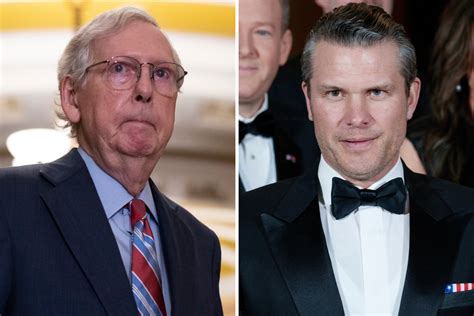
Ohio Senator J.D. Vance is facing criticism after suggesting that a fashion critic who panned his attire at a recent event should be deported, sparking a debate about free speech, political rhetoric, and immigration policy.
Senator J.D. Vance, a Republican representing Ohio, ignited a firestorm of controversy after he appeared to joke about deporting a menswear critic who negatively reviewed his outfit at a conference. The incident, which unfolded online, has drawn sharp criticism and raised concerns about the use of deportation as a flippant political retort.
The controversy stems from a post on X (formerly Twitter) by Derek Guy, a menswear writer and consultant known for his commentary on fashion and style. Guy critiqued Vance’s appearance at the recent National Conservatism Conference, describing the Senator’s suit as ill-fitting and questioning his overall style choices. “J.D. Vance looks like that one guy at the wedding who owns a bitcoin mine,” Guy wrote in his post.
Vance responded to Guy’s critique with a post of his own, stating, “Honestly, I am willing to deport people over less.” This remark quickly went viral, drawing condemnation from various quarters, including political commentators, legal experts, and social media users. Critics accused Vance of making light of the serious issue of deportation and using his platform to target individuals based on their opinions.
The exchange highlights the increasingly fraught intersection of politics, social media, and public discourse. While Vance’s supporters have defended his comment as a joke, others have argued that his position as a U.S. Senator demands a higher level of responsibility and sensitivity.
The senator’s office has yet to issue an official statement clarifying his remarks. However, the incident has already fueled a broader debate about the role of elected officials in shaping public discourse and the potential consequences of using inflammatory language.
Context and Background
J.D. Vance rose to national prominence with the publication of his memoir, “Hillbilly Elegy,” which chronicled his experiences growing up in a working-class Appalachian community. The book became a bestseller and was later adapted into a Netflix film. Vance’s political career began with his successful run for the U.S. Senate in 2022, where he campaigned on a platform of economic nationalism and conservative values.
Since entering the Senate, Vance has been a vocal advocate for policies aimed at protecting American jobs and restricting immigration. He has also been a strong supporter of former President Donald Trump and his “America First” agenda. Vance’s political positions and his willingness to engage in controversial rhetoric have made him a polarizing figure in American politics.
Derek Guy, the menswear critic at the center of the controversy, is a well-known figure in the fashion world. He is the founder of the website “Die, Workwear!” where he provides commentary on men’s style and offers advice on how to dress well. Guy’s critiques are often sharp and humorous, and he has a large following on social media.
The Controversy Unfolds
The exchange between Vance and Guy began with Guy’s critical assessment of Vance’s attire at the National Conservatism Conference. Guy’s initial tweet, which described Vance as looking like “that one guy at the wedding who owns a bitcoin mine,” was widely shared and generated considerable discussion.
Vance’s response, in which he stated that he was “willing to deport people over less,” quickly escalated the situation. The comment was widely interpreted as a threat, and many people accused Vance of abusing his power as a U.S. Senator.
Critics pointed out that Vance’s remark was particularly insensitive given the current political climate, in which immigration is a highly charged issue. They argued that Vance’s comment could be seen as encouraging violence against immigrants and undermining the rule of law.
Reactions and Responses
The controversy surrounding Vance’s comment has elicited a wide range of reactions. Some of Vance’s supporters have defended his remark as a joke, arguing that he was simply engaging in lighthearted banter. Others have accused Guy of being overly critical and of attacking Vance for his political views.
However, many people have condemned Vance’s comment as inappropriate and dangerous. Political commentators have criticized Vance for using his platform to target individuals based on their opinions. Legal experts have raised concerns about the potential for Vance’s comment to be interpreted as a threat. Social media users have expressed outrage and called for Vance to apologize.
Organizations that advocate for immigrant rights have also condemned Vance’s comment. They argue that Vance’s remark is part of a broader pattern of anti-immigrant rhetoric that is fueling discrimination and violence.
Legal and Ethical Considerations
The controversy surrounding Vance’s comment raises a number of legal and ethical considerations. One question is whether Vance’s remark could be interpreted as a true threat, which would be a violation of federal law.
Under 18 U.S. Code § 875, it is a federal crime to transmit in interstate or foreign commerce any communication containing any threat to injure the person of another. To constitute a true threat, the statement must be one that a reasonable person would interpret as a serious expression of an intent to cause harm.
In Vance’s case, it is unlikely that his comment would be considered a true threat under the law. While his remark was certainly insensitive and inappropriate, it is unlikely that a reasonable person would interpret it as a serious expression of an intent to cause harm to Guy.
However, Vance’s comment could still be seen as a violation of ethical standards for elected officials. Elected officials are expected to conduct themselves in a manner that is respectful and responsible. They are also expected to avoid using their positions of power to target individuals based on their opinions.
Vance’s comment arguably violated these ethical standards. By suggesting that he was willing to deport someone over a fashion critique, Vance used his position of power to target an individual based on his opinion. This conduct could be seen as undermining public trust in government and eroding the principles of free speech and open debate.
The Broader Implications
The controversy surrounding Vance’s comment has broader implications for American politics and society. The incident highlights the increasing polarization of American politics and the growing tendency for elected officials to engage in inflammatory rhetoric.
In recent years, American politics has become increasingly divided along partisan lines. This polarization has been fueled by a number of factors, including the rise of social media, the decline of traditional media, and the increasing influence of money in politics.
As American politics has become more polarized, elected officials have become more likely to engage in inflammatory rhetoric. This rhetoric is often aimed at mobilizing their base and demonizing their opponents. While inflammatory rhetoric can be effective in the short term, it can also have negative consequences for American society. It can erode trust in government, increase political division, and even lead to violence.
The controversy surrounding Vance’s comment is a reminder of the dangers of inflammatory rhetoric. Elected officials have a responsibility to conduct themselves in a manner that is respectful and responsible. They should avoid using their positions of power to target individuals based on their opinions.
The National Conservatism Conference
The National Conservatism Conference, where J.D. Vance’s attire became the subject of Derek Guy’s critique, is an event that brings together prominent figures and thinkers associated with the national conservatism movement. This movement generally emphasizes national identity, traditional values, and a more cautious approach to international relations.
The conference serves as a platform for discussing and promoting policies aligned with these principles. It often features speeches, panel discussions, and networking opportunities for attendees. Given the focus on national identity and traditional values, the conference itself can be seen as a reflection of certain stylistic and sartorial norms, making Vance’s appearance all the more notable in the context of Guy’s critique.
Free Speech Considerations
The First Amendment to the United States Constitution guarantees freedom of speech. However, this freedom is not absolute. There are certain categories of speech that are not protected by the First Amendment, such as true threats, incitement to violence, and defamation.
In Vance’s case, his comment is unlikely to be considered a violation of the First Amendment. While his remark was certainly insensitive and inappropriate, it is unlikely that it would be considered a true threat or incitement to violence.
However, the First Amendment does not give elected officials a free pass to say whatever they want. Elected officials have a responsibility to conduct themselves in a manner that is respectful and responsible. They should avoid using their positions of power to target individuals based on their opinions.
Vance’s comment arguably violated these ethical standards. By suggesting that he was willing to deport someone over a fashion critique, Vance used his position of power to target an individual based on his opinion. This conduct could be seen as undermining public trust in government and eroding the principles of free speech and open debate.
The Role of Social Media
Social media has played a significant role in the controversy surrounding Vance’s comment. The exchange between Vance and Guy took place on X, and the controversy quickly spread across the platform.
Social media has become an increasingly important tool for political communication. Elected officials use social media to connect with their constituents, share their views on policy issues, and respond to criticism.
However, social media can also be a breeding ground for misinformation and inflammatory rhetoric. The anonymity afforded by social media can embolden people to say things that they would never say in person.
The controversy surrounding Vance’s comment is a reminder of the potential dangers of social media. Elected officials should use social media responsibly and avoid using it to spread misinformation or engage in inflammatory rhetoric.
Impact on Vance’s Political Future
The long-term impact of this controversy on J.D. Vance’s political future remains to be seen. While some of his supporters may rally around him, the incident could alienate moderate voters and raise questions about his judgment and temperament.
Vance’s political trajectory has been marked by a willingness to court controversy and challenge conventional norms. This approach has resonated with a segment of the electorate, but it has also made him a target for criticism. The deportation remark is likely to further solidify existing perceptions of Vance, both positive and negative.
Conclusion
The controversy surrounding J.D. Vance’s comment about deporting a menswear critic highlights the complex interplay of politics, social media, and public discourse. The incident raises important questions about the responsibilities of elected officials, the limits of free speech, and the potential consequences of inflammatory rhetoric.
While Vance’s comment may not have violated any laws, it arguably violated ethical standards for elected officials. By suggesting that he was willing to deport someone over a fashion critique, Vance used his position of power to target an individual based on his opinion. This conduct could be seen as undermining public trust in government and eroding the principles of free speech and open debate. The long-term impact of this controversy on Vance’s political future remains to be seen, but it serves as a reminder of the dangers of inflammatory rhetoric and the importance of responsible political communication.
FAQ Section
Q1: What exactly did J.D. Vance say that caused the controversy?
A: J.D. Vance responded to a fashion critique of his attire by Derek Guy, a menswear writer, on X (formerly Twitter) by stating, “Honestly, I am willing to deport people over less.” This remark was interpreted as a flippant comment about using deportation as a response to criticism.
Q2: Who is Derek Guy and what was his critique of J.D. Vance’s clothing?
A: Derek Guy is a menswear writer and consultant known for his commentary on fashion and style. He critiqued J.D. Vance’s appearance at the National Conservatism Conference, describing the Senator’s suit as ill-fitting and questioning his overall style choices. He made the remark that “J.D. Vance looks like that one guy at the wedding who owns a bitcoin mine.”
Q3: Is J.D. Vance’s comment about deportation a legitimate threat?
A: Legally, it is unlikely that Vance’s comment would be considered a “true threat” under federal law (18 U.S. Code § 875), which requires a serious expression of intent to cause harm. However, the comment has been widely criticized as being insensitive, irresponsible, and inappropriate for an elected official.
Q4: What are the potential ethical implications of J.D. Vance’s statement?
A: Ethically, Vance’s comment could be seen as a violation of the standards expected of elected officials. It suggests an abuse of power by targeting an individual for expressing a critical opinion, potentially undermining public trust in government and eroding the principles of free speech and open debate.
Q5: How might this controversy affect J.D. Vance’s political future?
A: The controversy could have a mixed impact on Vance’s political future. While it might galvanize his base of supporters, it could also alienate moderate voters and raise concerns about his judgment and temperament. The incident reinforces existing perceptions of Vance as a politician willing to court controversy, both positively and negatively.
Extended Analysis: The Rhetoric of Deportation
The use of the term “deportation” in a casual or joking manner, as seen in Vance’s comment, carries significant weight due to the serious implications of deportation policies. Deportation involves the forced removal of individuals from a country, often resulting in the separation of families, the disruption of lives, and the potential for persecution in the country of origin.
In the United States, deportation has historically been a contentious issue, with debates surrounding immigration enforcement, border security, and the rights of immigrants. The Trump administration’s policies, in particular, led to increased deportations and heightened anxieties within immigrant communities.
Against this backdrop, Vance’s remark, even if intended as a joke, can be interpreted as insensitive and dismissive of the real-world consequences of deportation. Critics argue that it normalizes the idea of using deportation as a tool for silencing dissent or punishing those who express unpopular opinions.
The Role of Political Satire
In contrast to Vance’s comment, political satire often employs humor to critique political figures and policies. Satire can be a powerful tool for holding those in power accountable and fostering public debate. However, satire typically relies on exaggeration, irony, and wit to make its point, rather than direct threats or the suggestion of punitive measures.
Vance’s remark, while perhaps intended as humorous, lacked the nuanced critique and social commentary that characterize effective satire. Instead, it came across as a crude and insensitive response to personal criticism.
The Impact on Public Discourse
The controversy surrounding Vance’s comment highlights the challenges of maintaining civility and constructive dialogue in an increasingly polarized political climate. The ease with which inflammatory remarks can spread on social media amplifies the potential for misunderstanding and offense.
Elected officials, in particular, have a responsibility to use their platforms to promote reasoned debate and respectful engagement with opposing viewpoints. By resorting to personal attacks or suggesting punitive measures, they risk further eroding public trust and exacerbating political divisions.
Comparative Analysis: Similar Controversies
This incident is not isolated; similar controversies have erupted involving other politicians and public figures who have made remarks perceived as insensitive or threatening. These incidents often involve issues such as immigration, race, gender, or sexual orientation, and they typically spark intense public debate and calls for accountability.
Examining these similar controversies can provide insights into the broader patterns of political discourse and the challenges of navigating sensitive social and political issues. They also underscore the importance of responsible communication and the potential consequences of inflammatory rhetoric.
The Future of Political Communication
The controversy surrounding Vance’s comment raises questions about the future of political communication in the age of social media. As platforms like X continue to play a central role in shaping public discourse, it is crucial for elected officials to develop strategies for engaging with their constituents in a responsible and constructive manner.
This includes avoiding personal attacks, promoting reasoned debate, and refraining from remarks that could be interpreted as threats or incitement to violence. It also requires a willingness to listen to opposing viewpoints and engage in good-faith dialogue.
Further Considerations
- Freedom of Expression vs. Responsible Speech: The incident underscores the ongoing tension between the right to freedom of expression and the responsibility to use speech in a way that promotes constructive dialogue and avoids harm. While individuals have the right to express their opinions, elected officials have a higher duty to consider the potential impact of their words.
- The Role of Context: The interpretation of Vance’s comment depends heavily on context. While some may view it as a harmless joke, others may see it as a reflection of deeper political attitudes and a willingness to use the power of the state to silence dissent.
- The Impact on Immigrant Communities: Vance’s comment could have a chilling effect on immigrant communities, who may already feel vulnerable and targeted. It reinforces the perception that their presence in the country is contingent on their adherence to certain political views or social norms.
- The Importance of Accountability: Holding elected officials accountable for their words and actions is crucial for maintaining public trust and upholding democratic values. This can involve public criticism, calls for apologies, and, in some cases, formal disciplinary action.
- The Need for Nuance: The controversy highlights the need for nuance and critical thinking when engaging with political discourse. It is important to consider the intent behind a statement, the context in which it was made, and the potential impact on different audiences.
Conclusion (Expanded)
The J.D. Vance and Derek Guy incident serves as a stark reminder of the power of words, especially when wielded by individuals in positions of authority. While the immediate fallout involves public scrutiny and debate, the long-term implications delve into the ethical responsibilities of elected officials, the boundaries of free speech, and the ever-present tension between political rhetoric and its real-world consequences.
Senator Vance’s remark, regardless of its intended levity, touched upon a particularly sensitive nerve in American society – the issue of immigration and deportation. In a nation grappling with complex debates on border security, immigrant rights, and the socio-economic impact of immigration policies, the casual suggestion of deportation as a response to criticism carries significant weight. It risks normalizing the concept of deportation as a tool for silencing dissent and perpetuating a climate of fear and uncertainty within immigrant communities.
The incident also raises pertinent questions about the role of social media in shaping political discourse. The ease with which inflammatory remarks can be disseminated and amplified on platforms like X underscores the need for responsible communication, particularly from those in positions of power. Elected officials have a duty to foster constructive dialogue, engage in respectful debate, and avoid language that could be interpreted as threatening or inciting violence.
In the aftermath of this controversy, it is essential for Senator Vance to reflect on the potential impact of his words and to consider issuing a statement that clarifies his intent and acknowledges the concerns raised by his remark. Furthermore, it is incumbent upon all participants in the political arena to engage in thoughtful and nuanced discussions on issues of immigration, free speech, and the ethical responsibilities of elected officials.
The incident should serve as a catalyst for fostering greater empathy, understanding, and respect in our public discourse. It should remind us of the importance of holding our elected officials accountable for their words and actions, and of working towards a more inclusive and equitable society where all voices can be heard without fear of retribution.
Ultimately, the J.D. Vance and Derek Guy controversy is a microcosm of the larger challenges facing American democracy. It underscores the need for critical thinking, responsible communication, and a commitment to upholding the values of free speech, equality, and justice for all. As citizens, it is our collective responsibility to engage in these conversations and to demand that our elected officials uphold the highest standards of ethical conduct.
This expanded analysis aims to provide a more comprehensive understanding of the J.D. Vance/Derek Guy controversy, exploring its various dimensions and offering insights into its broader implications. It is hoped that this analysis will contribute to a more informed and nuanced discussion of the issues involved.









